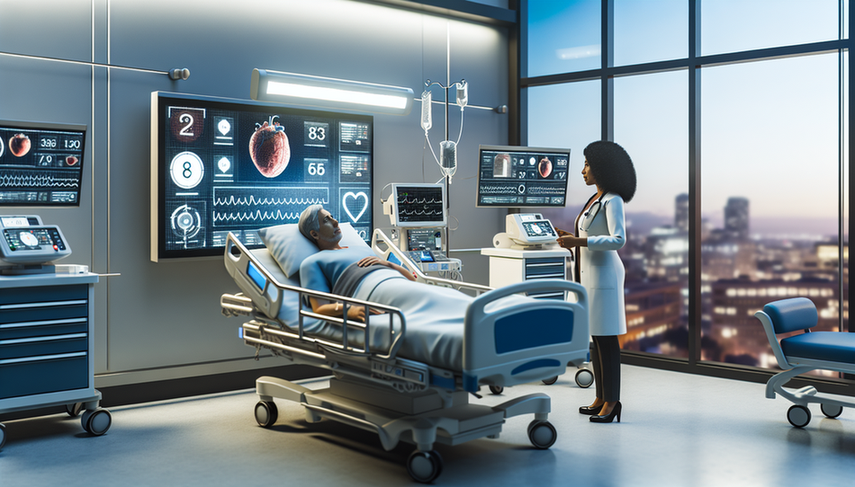Early Warning Systems in Hospitals: Leveraging AI and Big Data for ICU Patient Monitoring and Risk Assessment

The implementation of early warning systems in hospitals has revolutionized hospital monitoring, enabling a faster and more effective response to the clinical deterioration of patients. The integration of artificial intelligence (AI) in these systems has enhanced their predictive capabilities, improving the identification of adverse events before they occur. This advancement is crucial in areas such as the intensive care unit (ICU), where response time is vital for patient survival.
AI in Hospital Monitoring
AI has proven to be a powerful tool in ICU patient monitoring. A recent study showed that an early warning system based on machine learning significantly reduced intraoperative hypotension in patients undergoing non-cardiac surgery, underscoring the potential of AI to improve surgical outcomes. Furthermore, remote monitoring and AI are increasingly being integrated into anesthesiology, allowing anesthesiologists to focus on more complex tasks while optimizing patient care.
In the ICU setting, AI is used to predict circulatory failure with remarkable accuracy, identifying 90% of events more than two hours in advance. This not only improves response capacity but also reduces alarm fatigue, a common issue in intensive care environments. The early prediction of the need for mechanical ventilation in neonates is another example of how AI is transforming personalized care in the ICU.
Conclusions
The integration of AI in early warning systems is redefining hospital monitoring and significantly enhancing patient care. These systems not only allow for earlier detection of complications but also optimize resource utilization and improve medical staff efficiency. As technology advances, it is essential for healthcare professionals to stay updated on these innovations to maximize their potential in clinical practice.
Referencias
- [1] Effect of a Machine Learning-Derived Early Warning System for Intraoperative Hypotension vs Standard Care on Depth and Duration of Intraoperative Hypotension During Elective Noncardiac Surgery: The HYPE Randomized Clinical Trial
- [2] Remote Monitoring and Artificial Intelligence: Outlook for 2050
- [3] Early prediction of circulatory failure in the intensive care unit using machine learning
- [4] Early prediction of need for invasive mechanical ventilation in the neonatal intensive care unit using artificial intelligence and electronic health records: a clinical study
Created 20/1/2025
